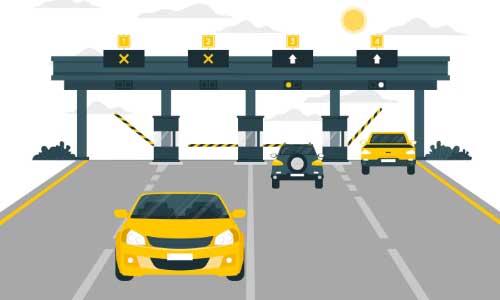Let’s say you get a car and your friend purchases exactly the same one on the very same day. With respect to car insurance premiums, however, you may notice that the rates are different for you two! Ever wondered why?
When you buy car insurance, insurance companies consider several factors before deciding the rates. While the most popular factors include your claim history, age, car’s value, and more, some also wonder about the impact of credit score on your motor insurance premiums.
Best Car Insurance in UAE
Some of the best and the cheapest car insurance quotes in Dubai are:
Let’s find out the relation between AECB credit score and car insurance, and whether this score impacts the latter’s cost.
Does Your Credit Score Affect Car Insurance Premiums?
No, unlike the scenario in some countries, credit score does not affect car insurance premiums in the UAE.
Credit score is primarily linked to your credit activity. In simple terms, it’s mainly related to your credit cards, loans, and so on. With respect to premiums of motor insurance (or any other major insurance type), there’s no impact of this score.
So while it’s always advisable to have a good credit score, keep in mind that it won’t bring any benefit in terms of insurance premiums.
So What Affects Car Insurance Premiums?
While your AECB credit score doesn’t affect motor insurance costs, let’s take a look at the factors that play an important role in your premiums —
- Your age
- Driving experience
- Car’s cost
- Record of accidents (if any)
- Car’s age
- Type of coverage (comprehensive or third-party car insurance)
What is a Credit Score?
It’s a 3-digit number generated by the Al Etihad Credit Bureau (AECB). Based on your record of dealing with loans, credit cards, and more, this score in the UAE shows your reputation as a borrower. Credit score in the UAE varies from 300 to 900. The closer you are to 900, the better your credit score is.
How to Improve Credit Score?
While a high credit score won’t bring any advantages for car insurance premiums, it can certainly offer you perks like higher chances of credit card/loan approval, better interest rates, and more.
Here’s how you can boost your score —
- Pay your credit card dues and loan instalments on time
- Be careful in terms of credit utilisation
- Keep a good mix of different types of credit
- Don’t apply for too many loans or credit cards in one go
How Can I Reduce My Car Insurance Premium if My Credit Score is Bad?
While a bad credit score won’t affect your premiums, you can work on several other factors to bring down your car insurance costs —
- Compare motor insurance online thoroughly
- Maintain a good driving record
- Choose higher deductibles
- Get anti-theft devices installed in car
More From Car Insurance
- Recent Articles
- Popular Articles


















